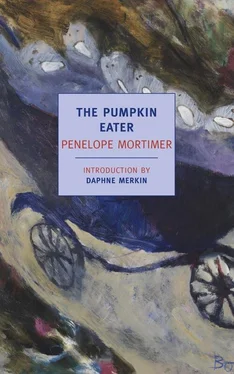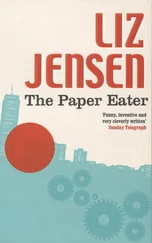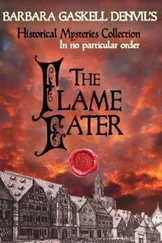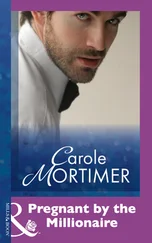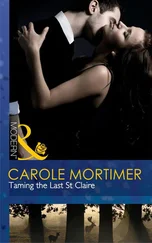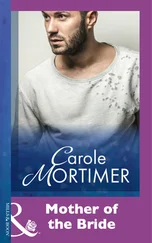He laughed heartily. “I’m glad to see your sense of humour flourishing.” Everything about his face, except the jovial mouth, was as cold as mine. “Now, I was going to give you a prescription, wasn’t I?” The pen flourished again. “One twice a day … There you are. I think they’ll deal with those little weeps of yours. But keep them away from the children.”
“Yes,” I said. “Thank you, doctor.”
“And don’t be down-hearted. Great progress is being made. Great, great progress.”
9
Although he has no use for Freud (“all that cock”), Jake would unhesitatingly say that I longed all my life for a husband like my father: practical, positive, a man with a work bench, reliable. But then, my father was not like this. His reliability was invented by Jake. My father was a complete provincial. His ideas sprang directly from his own actions, and his actions were necessary to the way he lived. Nothing from the outside ever touched him. He had to engage a woman — my mother — to cook for him, but beyond this he was as near self-supporting as it is possible for a twentieth century Englishman to be. Among his few failures was an attempt to grow his own tobacco.
My grandfather died when my father was twenty, leaving him the family business, a small tent and rope factory in Bedfordshire. The factory made many things besides rope and tents: string, matting, canvas, anything that could be made out of hemp. This hemp was grown on a plantation in India, managed in my childhood by one of my father’s cousins, a tall, remote man whom we called Uncle Ted. If I had an ideal, Uncle Ted approached it far more than my father. He was lean and burnt out, with colourless eyes like diamonds and enormous feet. I always liked men with big feet, but never married one. Jake’s are small, arched, short-toed, inclined to be dainty. When I first met him I thought he was queer, because of the size of his feet and the crumpled little suede shoes he wore on them.
Uncle Ted, my first love, was almost completely silent. Possibly this was because he was stupid, but since he never returned from India after his last journey back in 1936, I don’t know. When I was a small child he seemed to me wise. If he is still alive — and there has been no sign of him for twenty-six years — he must be about seventy. In my first term at school I used to carry a photograph of him in my blazer pocket. It was taken against the Indian sun, and screwing up his eyes he looked reasonably boyish. I told the more credulous girls that he was my young man. As I was very fat and plain at the time, even they didn’t believe me.
When I grew thinner I fell in love. For two years I loved the son of the local clergyman and he, sporadically, loved me. Although I was only thirteen at the beginning of this romance — he kissed me abruptly on a bus coming back from the cinema in Luton — my parents seemed to approve. I realized later that if they had seen us in bed together they would have thought we were playing sardines. We did not, of course, go to bed together. It didn’t occur to us. But we struggled together in the backs of cars, in attics and summer houses and my father’s rope yard at night, and in the organ loft. In the term time we wrote to each other, and for the first days of the holidays never sought each other out but waited, with desperate anxiety, to meet by chance in Smith’s or Woolworths or outside the bicycle shop, where we would often stand stroking the gleaming handlebars of speedy bicycles.
My friends at school, during this period, were Betty Maclaren, Irene (pronounced Ireen) Douthwaite, Angela Williams and Mary White. Their fathers, like mine, were business men. Their fathers drove twelve-horsepower Standard or Vauxhall cars and wore navy blue suits, trilby hats and mackintoshes. Their mothers all had new permanent waves, made up their faces with vanishing cream and “natural” face powder, wore fur coats all the year round. Their brothers went to Oundle or Repton and were gods.
When these friends went to stay with each other in the holidays they invented interesting situations between themselves and their friends’ brothers. Sometimes a brother would write, “Give my regards to the fair Angela,” or “my humblest respects to Miss I. Douthwaite, I hope she is in good health.” Then giggling attacked us like a plague, all day we were wracked with it, spluttering into our handkerchiefs, doubled up over our prayers, not daring to catch each other’s eyes for fear of a new bout beginning. I had no brothers, and therefore took it for granted that none of my friends would want to come and stay with me. There had to be a sexual incentive for everything: that was why we went to church and were fairly attentive in scripture, biology and English literature. None of us, at that time, could concentrate on mathematics or geography and we plodded on with Latin only in the faint hope that we might one day be able to understand Ovid. We had not yet encountered medical text-books, which would have provided a sharper spur.
My friends knew, of course, about the clergyman’s son. I told them that he was nineteen, since we were only interested in older men, but otherwise I was fairly truthful. “You wouldn’t like him,” I said airily, keeping my great love for him to myself. “He doesn’t care a bit about films or dance music or anything like that.”
“Oh, I like clever boys best,” Ireen said, sucking up to me.
“I dote on clever boys,” Mary White said. She had an aunt in London who was going to present her at Court. This same aunt had already taken her to a play by Noel Coward and a Cochran revue. Mary White regarded herself as a civilizing influence and kept telling us that her parents were going to be divorced. She was not to be trusted.
“Well, you wouldn’t like him ,” I said.
“Why do you , then?”
“I don’t, all that much. You know how it is. One gets so dreadfully bored.”
“Oh my goodness,” they sighed, lolling about over their beds and hitting their open mouths, “so bored , my deah, so too too too bored …”
“Oh, shut up,” I said, and sulked for the rest of the day, stalking about with my blazer collar turned up and my lower lip sagging, to show contempt.
A few days later, when this tiff had been forgotten, Ireen found me in the library where I was sitting puzzling over a cross-section of a mighty liner in the Illustrated London News .
“I’ve been looking for you everywhere,” she said. “I’ve just had the most awful news.”
“What news?”
“Well, you know we were going to Spain these hols — ”
“Yes. Well?”
“And Roger was going to bring Brian and maybe the Maclarens were going to come with Eric and David — ”
“Yes. Go on .”
“Well! Now it seems we can’t go because of this stupid old war! It just seems we can’t go and that’s all there is to it!” She threw a crumpled letter down on the green baize. “I just got this letter.”
“What war?” I asked, disbelieving.
“Don’t ask me! Some old General’s invaded it or something.”
“Invaded what?”
“Spain, you clot. I don’t know. Nobody ever tells you a thing in this place. I don’t see why we can’t go anyway. I mean nobody’s going to shoot us or anything, are they?”
“Oh no,” I said. “They wouldn’t be allowed to.”
“Well, of course they wouldn’t. But Pa says it’s quite out of the question and we’ve just got to resign ourselves and go to Littlehampton .”
“How awful for you,” I said vaguely. I had never been abroad, and Littlehampton sounded rather distinguished to me.
“Awful? I could die! Of course Roger won’t ask Brian there . I mean, there’s nothing to do in Littlehampton. Honestly, I could kill that Franco!”
Читать дальше
